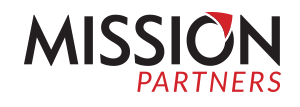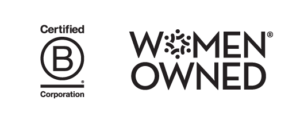Leaning into the Real Work of a Better Business Model
A few years back, shortly after receiving our B Corp Certification, a fellow business owner asked why we had gone through the process; knowing the investment of time it had required of our small team.
“Why put yourself through that when you’re already known as a purpose-driven brand?” this person asked. “We’ve grown because people think we’re a B Corp even though we’re not,” they added, “and we didn’t have to go through any of the hard work that you did.”
I was taken aback by the statement then, and as time has gone by, it has stayed with me.
In truth, the hard work of being a B Corp is hardly in the application process. More than 3,700 businesses around the world this month are celebrating what it means to be a Certified B Corporation— and we are proud to be among them. B Corporations are better for employees, the community, customers, and the environment. It’s our collective and ongoing hard work that is driving transformational change across the business sectors we represent.
The truth is: our company didn’t set out to become a Certified B Corporation so we could market ourselves as such or to grow our company — those are both happy outcomes of a much deeper reason that led us to become “B Certified.” Rather, we set out to achieve the B Corp Certification because we believe so deeply in building better business and we appreciate knowing that the B Corp community — including my fellow #WeTheChange women leaders of Certified B Corporations — is willing to have brave conversations about what the future of business can be, rather than what the history of business has been.
In the next few weeks, Mission Partners will release our annual social impact report, in which we’ll report on the state of our public commitments to building a just and inclusive economy. We’ll provide an update on our publicly available Race Equity Action Plan, and we’ll share how we’ve dug into the intended and unintended consequences of every one of our policies and practices to challenge norms that much of business still takes for granted, in order to chart a path for a better business in the process.
This level of public accountability, and commitment to operate at a standard consistent with our values, is not easy. But it has become increasingly essential for our small business as we operate from a different form of business foundation: a foundation that centers people, planet, and then profit. In doing so, not only have we become more successful, but we’ve gained clarity on what we do and what we don’t in daily practice:
- Do we challenge white supremacist norms when we see them in our business and our client projects, and explore ways to address them rather than turn a blind eye? Yes, humbly, and from a place of continuous learning.
- Do we turn down lucrative assignments when they are not in line with our values? Yes, without question.
- Do we believe in pay equity, across all employees? Absolutely. At Mission Partners, we maintain a pay ratio between our highest and lowest paid employee of 5:1, as compared to the corporate standard of 144:1.
After first reading the book Heart, Smarts, Guts and Luck, I used to think, “Yes! that’s how I’ve built my business — with a solid combination of those four characteristics.” But I see now, through the lens of our B Corp structure, that building a better business requires more than heart, smarts, guts and luck. It also requires courage and a commitment to make decisions that benefit our people and our planet even when they are not in the best interest of the business owner. It’s those difficult decisions — that hard work — that have most strengthened our business.
Being a B Corp and learning to fully live into our values means being willing to go there — wherever our employees, our communities, and our planet requires, and to see those actions through, fully. It means wholeheartedly promoting courageous leadership within our company — not because those words sound interesting, but because inherently we know that doing so will in fact build a better, more sustainable, and a more just version of our business.
In business — as in life — there are always shortcuts. This might look like purporting the B Corp philosophy without having done the work or making broad statements about equity without digging deeply into the causes and consequences of inequities in your own workforce. But, just as there are shortcuts, there are also opportunities to examine our work more closely: to examine the process, to consider the construct, to reimagine the outcome.
A few weeks ago, we had an opportunity to do just that. We were among a select set of companies invited to bid on a lucrative project that — should we have won — would have allowed us overnight to hit our annual sales goal for 2021. But after the first conversation, it was clear that taking on this project would be in direct conflict with our values of transparency, as the partner wasn’t willing to disclose the source of the funds that would be covering the cost of our work. There are plenty of companies willing to look the other way; to not question the funding source. But for us, it would signal a compromise to the business we are building, and the company we keep. So, we walked away, and within three days, a second, even better opportunity opened that was even more in line with our values.
It’s within those moments, and those decisions, that define what better business can be.
Decision-making is what we do in business, every day, and the design of those decisions shape who we are. Running a business through the B Corp lens means being willing each day to ask: “How will this decision allow our team to further live into our values and advance our collective impact? Even more, how might this decision help us untangle the inequities and injustice that we see, and contribute to different and more equitable outcomes?”
Yes, heart, smarts, guts and a little luck have helped us along, but so have truth, fairness, transparency, and real hard work. We may not always get it right, but we’ve never compromised our values. And to us, that’s what better business is all about.





 Check out our new
Check out our new